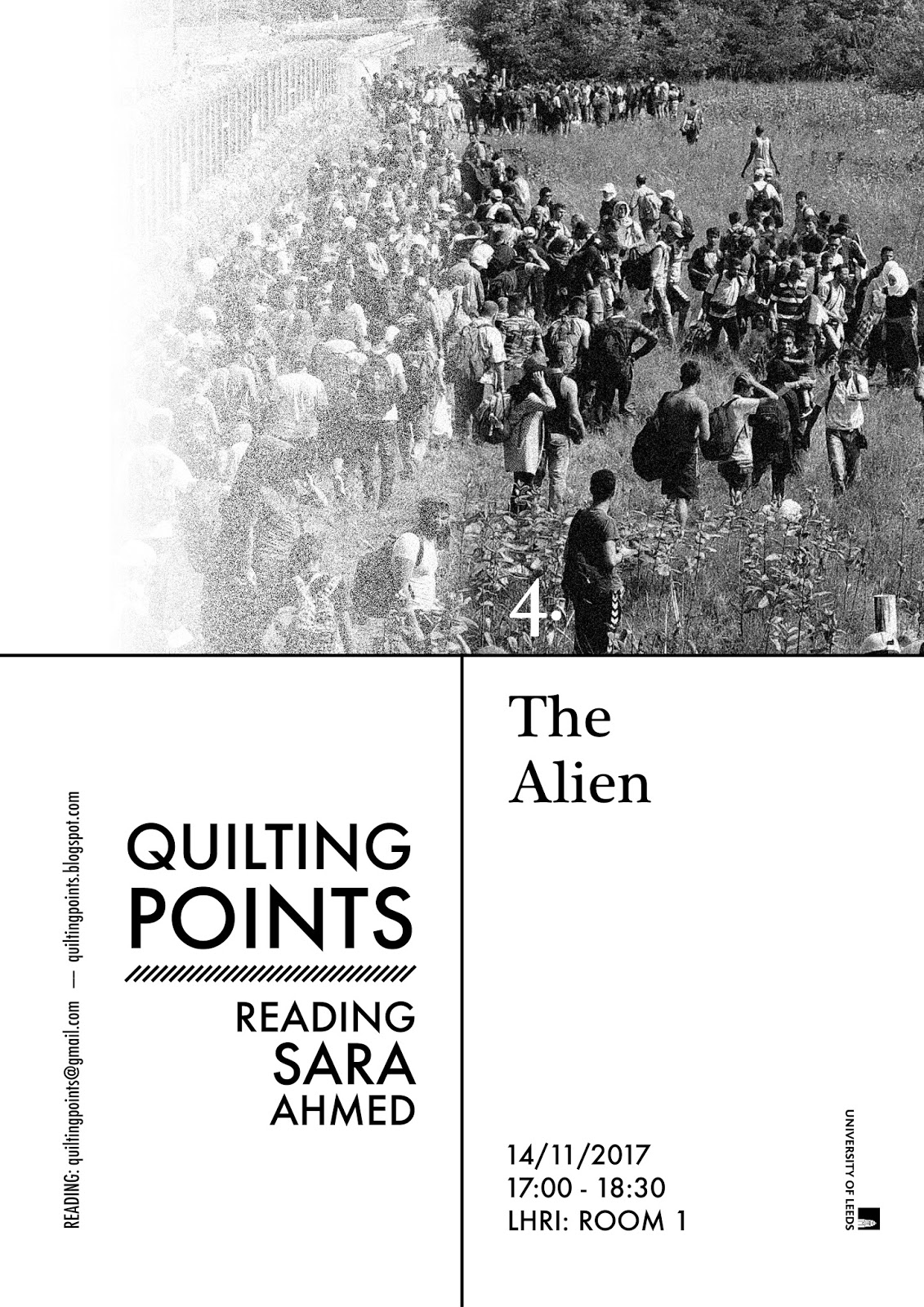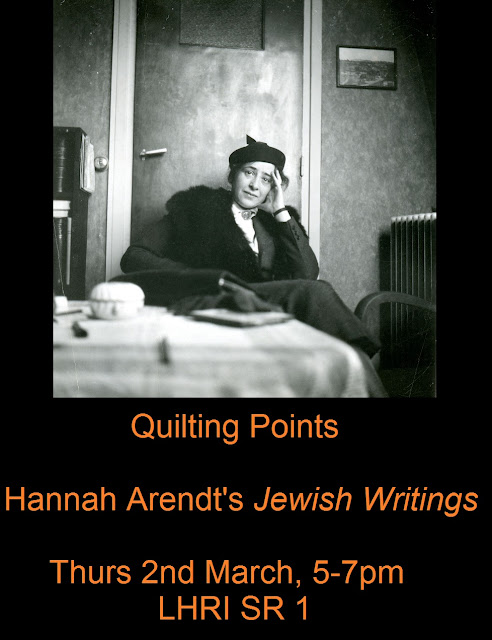To live together in the world means essentially that a world of things is between those who have it in common, as a table is located between those who sit around if, the world, like every in-between, relates and separates men at the same time. Hannah Arendt, The Human Condition For our final session of the year, and our final session looking at Hannah Arendt, we will we be screening the 1964 interview between her and Günter Gaus, shown on Zur Person / The Person . Then, to celebrate our year with Arendt we will do one of her favourite things - sit around a table (and eat!). During Zur Person , Arendt discusses her relationship to philosophy, politics and her gender. Watching it gives us a rare chance to hear Arendt candidly answering questions about her political theory. Following the screening, we will walk down to award-winning Kerala restaurant, Tharavadu , for an end of year meal. If you wish to come to the meal, please RSVP by ...














